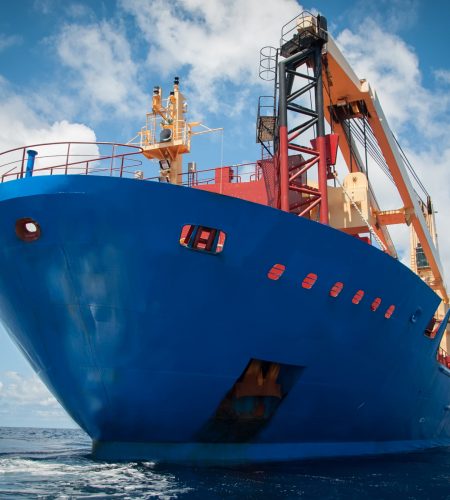From Silicon to Sea.
Powering the Blue Economy.

Oceans
The 21st century’s most advanced technologies rely on semiconductors. The tiny switches and amplifiers that precisely manage electrical currents that control power, sensors and communication systems, they animate everything from refrigerators to cell phones to satellites.
While the semiconductor industry is characterized by vertical specializations such as design, manufacturing and system integration, they are profoundly horizontal in application. From the chip in your dog’s ear to autonomous vehicles, semiconductors are ubiquitous. From automotive, mining and natural resources, agriculture, medtech, aerospace and defence, telecommunication, advanced manufacturing – to oceans – semiconductors are the fundamental building blocks of the technology that powers the economy.

Semiconductors in the Ocean Sector
Modern vessels rely on complex electronic systems powered by semiconductors. Largely impervious to harsh marine environments, navigation, communication devices, engine control units, sonar technology and monitoring mechanisms all leverage semiconductor technology’s ability to process information efficiently and accurately.
Smart shipping and ports; sustainable aquaculture, oceanographic research, coastal surveillance and security, oceanic infrastructure and energy use as well as marine wildlife all rely on the processing capabilities of semiconductors. Applications include:
- Navigation and positioning systems: GPS receivers, inertial navigation units, and electronic charts rely on semiconductor chips for precise location data processing.
- Communication systems: Marine radios, satellite communication terminals and on board network systems utilize semiconductors for signal processing and data transmission.
- Engine control units (ECUs): Semiconductors are crucial in managing parameters like fuel injection, ignition timing and emissions control on marine engines.
- Sonar systems: Advanced sonar technology for underwater mapping, fish detection and obstacle avoidance depend heavily on semiconductor-based signal processing.
- Monitoring and diagnostics systems: Sensors that monitor vital ship parameters like temperature, pressure and vibration often incorporate semiconductor technology for data acquisition and analysis.
- Electrical power management: Power conversion systems that regulate voltage and current for various on board electrical systems depend on semiconductors.
- Autonomous navigation systems: Emerging technologies like autonomous vessels rely heavily on sophisticated semiconductor-based computing power for navigation decision-making.

Robust Technology for Extreme Marine Conditions
Quantum Computing Infrastructure
The marine environment is a vast ecosystem of latent power and harsh conditions that can explode in an instant, creating life threatening-conditions. Semiconductors’ unique properties make them the ideal technology for:
- Processing power: Semiconductors enable fast and accurate data processing, crucial for real-time decision making in marine operations.
- Miniaturization: Smaller semiconductor components allow for compact designs on marine vessels where space is at a premium.
- Reliability: Even in harsh marine environments with salt spray, moisture and vibration, semiconductors retain high reliability.
- Energy efficiency: Semiconductor-based systems can optimize power consumption, contributing to improved fuel efficiency on ships.
As change and uncertainty rip through global trade relationships, forging strong connections between the semiconductor sector and ocean-industries is crucial to protecting the ability of Canada to innovate and compete.
